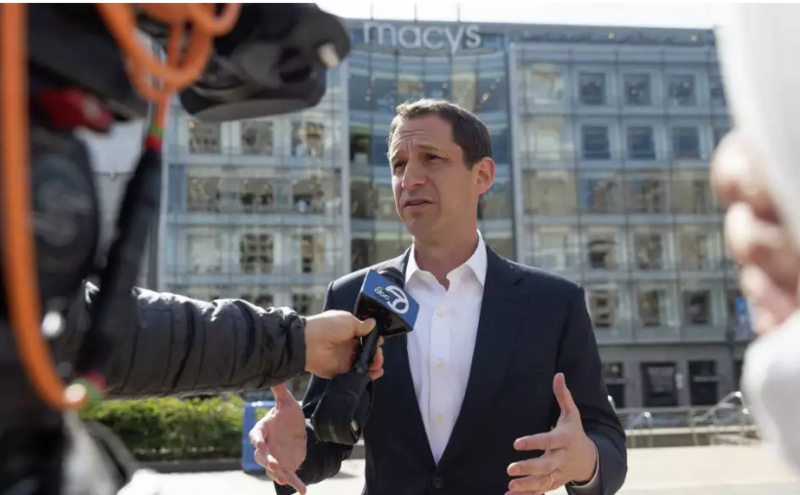by St. John Barned-Smith at sfchronicle.com
Fighting corruption, bloat and dysfunction at City Hall are perennial talking points for elected officials and candidates in San Francisco, which raises the question of whether such plans ever translate into improvements in how residents and businesses interact with the city.
The candidates for mayor have seized on the topic with an array of get-tough proposals, with Daniel Lurie, the Levi Strauss scion, announcing a plan Wednesday to streamline permitting, improve performance of the city’s nonprofits and hold contractors accountable. One of his proposals is to create a “shot clock” for review times on project permits.
Supervisor Aaron Peskin called for an inspector general with subpoena power as he announced his campaign last week. Former Mayor Mark Farrell has said he wants to audit the city’s homelessness and community health and welfare budgets.
Incumbent Mayor London Breed, meanwhile, says her opponents are ripping off her ideas.
The candidates’ strategies reflect a broad public perception that things are not working at City Hall, said Corey Cook, provost Saint Mary’s College of California.
“That’s clear from what voters are doing, what candidates are saying,” he said. “They’re positioning themselves as the candidate who can meaningful change — that’s the direction every candidate is running.”
But James Lance Taylor, a professor of politics at the University of San Francisco, questioned whether the focus on this set of intractable issues will resonate with voters, whom polls show are most focused on homelessness, fentanyl and housing.
Lurie, 47, who is also the founder of nonprofit Tipping Point Community, released a slew of proposals to improve the city’s contracting and accountability practices, reform permitting at the Department of Building Inspection, and centralize construction management.
The proposals mark Lurie’s most detailed policy suggestions since entering the mayor’s race in September, and his latest effort to separate himself from in a crowded and competitive field.
He said the proposed reforms would upend a bureaucracy that “rewards corruption while undermining progress” on public safety, housing affordability and homelessness.
“The leaders that got us into this mess are suggesting that they’re the ones to get us out of this mess,” he continued. He argued that his opponents have “tinkered around the edges” instead of confronting San Francisco’s challenges head-on.
To improve contracting accountability, Lurie proposed centralizing contract management and oversight into one unit of contract experts.
That would shrink the overall size of city bureaucracy, he said. Other reforms include requiring contracts to state clear outcomes, developing a “scorecard,” to assess whether contractors are meeting expectations and hiring a chief financial officer to monitor the city’s contracts with its nonprofit organizations.
Lurie also called for representatives at large nonprofits — those that do more than $1 million in business with the city — to register as lobbyists.
San Francisco distributes more than a billion dollars annually to more than 600 nonprofit organizations, but over the past few years, a slew of nonprofits have become mired in scandal, raising further concerns about how City Hall is managing its finances and the effectiveness of its strategies to fight homelessness and other issues.
Lurie also took aim at the Department of Building Inspection, which has faced numerous allegations of corruption over the last four years, after a broad FBI anti-corruption probe into City Hall led to the ouster of DBI’s top leader, as well as fraud convictions against two plan checkers and a senior building inspector, along with several developers and an engineer accused of bribery.

